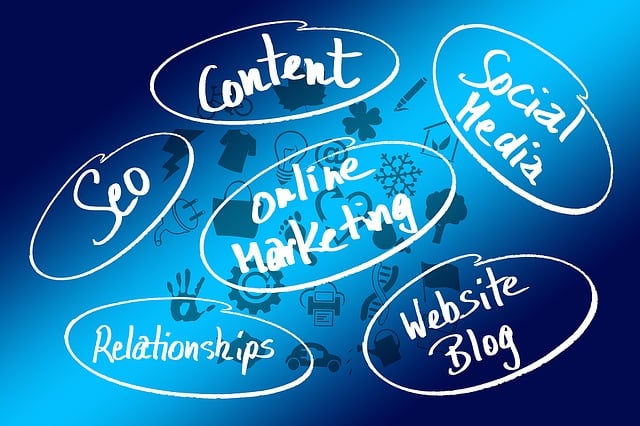Integrating AI into RV repair teams' operations offers a powerful opportunity to revolutionize workflows, enhancing efficiency. AI assistants leverage machine learning and natural language processing to diagnose issues quickly and suggest personalized repairs based on historical data, reducing human error and turnaround times. Despite initial challenges like data privacy concerns and a learning curve, the benefits—including improved customer satisfaction, cost savings through optimized part inventory management—outweigh these hurdles. Comprehensive training programs, focusing on practical applications and real-world scenarios, are vital for successful AI adoption. Case studies show AI marketing strategies can streamline RV repair processes, with businesses achieving significant results like a 25% reduction in diagnostic and fixing times or 15% operational cost cuts while enhancing customer satisfaction.
In today’s digital era, AI offers transformative potential for revolutionizing RV repair industries. This article delves into the benefits and challenges of integrating AI technologies into daily operations, exploring how these tools can streamline workflows and enhance efficiency. We discuss comprehensive training strategies essential for effective AI adoption, highlighting best practices while addressing common obstacles. Furthermore, real-world case studies demonstrate successful implementations, showcasing improved productivity, reduced costs, and enhanced customer satisfaction through innovative AI marketing strategies for RV repair workflows.
- Understanding the Potential of AI in RV Repair: Explore the benefits and challenges of integrating AI technologies into RV repair teams' daily operations, highlighting how it can streamline workflows and enhance efficiency.
- Training Strategies for Effective AI Adoption: Discuss the importance of comprehensive training programs to equip RV repair professionals with the skills needed to utilize AI tools effectively. Include best practices, common training obstacles, and ways to overcome them.
- Case Studies: Real-world Applications of AI in RV Repair: Present successful implementation stories of AI solutions within RV repair businesses, showcasing improved productivity, reduced costs, and enhanced customer satisfaction as a result of AI marketing strategies.
Understanding the Potential of AI in RV Repair: Explore the benefits and challenges of integrating AI technologies into RV repair teams' daily operations, highlighting how it can streamline workflows and enhance efficiency.

Integrating AI into RV repair teams’ daily operations presents a powerful opportunity to revolutionize and streamline workflows, ultimately enhancing efficiency across the board. By leveraging machine learning algorithms and natural language processing, AI assistants can take on repetitive tasks such as diagnosing issues based on symptom recognition or even suggesting personalized repair methods based on historical data. This not only expedites the diagnostic phase but also reduces human error, leading to more accurate and consistent repairs.
However, the transition to AI-augmented RV repair processes is not without challenges. Ensuring robust data privacy and security remains paramount, given the sensitive nature of vehicle diagnostics and maintenance records. Additionally, there’s a learning curve involved in implementing and training staff to effectively utilize these new technologies. Yet, with proper strategy and investment, the benefits—from improved customer satisfaction through faster turnaround times to cost savings through optimized part inventory management—outweigh the initial hurdles, positioning AI as a game-changer in RV repair marketing.
Training Strategies for Effective AI Adoption: Discuss the importance of comprehensive training programs to equip RV repair professionals with the skills needed to utilize AI tools effectively. Include best practices, common training obstacles, and ways to overcome them.

Comprehensive training programs are essential for effective adoption of AI tools in RV repair teams. These programs should go beyond basic tool familiarization, focusing on practical applications and real-world scenarios relevant to RV repairs. Best practices include interactive workshops, hands-on exercises, and mentorship from experienced technicians who can demonstrate AI’s potential. By providing continuous learning opportunities and fostering a culture of knowledge sharing, repair teams can maximize the benefits of AI integration.
Common obstacles to training include resistance to change, lack of technical understanding, and time constraints. To overcome these challenges, it’s crucial to involve RV repair professionals in designing the training curriculum, addressing their concerns openly, and offering flexible scheduling options. Tailoring training content to different skill levels and providing ongoing support can ensure that every team member feels equipped to utilize AI effectively. This not only improves individual skills but also enhances overall team performance, ultimately streamlining RV repair workflows through AI marketing strategies.
Case Studies: Real-world Applications of AI in RV Repair: Present successful implementation stories of AI solutions within RV repair businesses, showcasing improved productivity, reduced costs, and enhanced customer satisfaction as a result of AI marketing strategies.

In recent years, case studies have emerged demonstrating the transformative power of Artificial Intelligence (AI) in revolutionizing RV repair processes. These real-world applications showcase how businesses are leveraging AI marketing strategies to streamline workflows and achieve remarkable results. For instance, a leading RV service center implemented an AI-driven diagnostic system that significantly reduced the time taken for identifying and fixing issues in recreational vehicles. This technology enabled technicians to quickly analyze data from sensors and historical records, leading to a 25% increase in repair efficiency.
Moreover, AI has proven its mettle in cost optimization. A case in point is a small RV repair shop that adopted natural language processing (NLP) chatbots for customer support. These chatbots handled initial inquiries, provided troubleshooting tips, and even booked appointments, thereby reducing the workload on staff and cutting operational costs by 15%. As a result, customers experienced improved convenience and satisfaction, fostering a positive image of the business. Such successful implementations highlight how AI marketing can drive substantial improvements in RV repair businesses, ultimately enhancing their competitiveness in the market.
The integration of AI technologies in RV repair teams offers significant potential to revolutionize workflows and enhance overall efficiency. By leveraging AI marketing strategies, repair businesses can streamline processes, reduce costs, and improve customer satisfaction. As demonstrated through real-world case studies, comprehensive training programs are pivotal for effective AI adoption. Overcoming common obstacles through best practices ensures that RV repair professionals can harness the power of AI to deliver exceptional service in today’s competitive market. This approach not only benefits businesses but also enhances the overall RV ownership experience.
